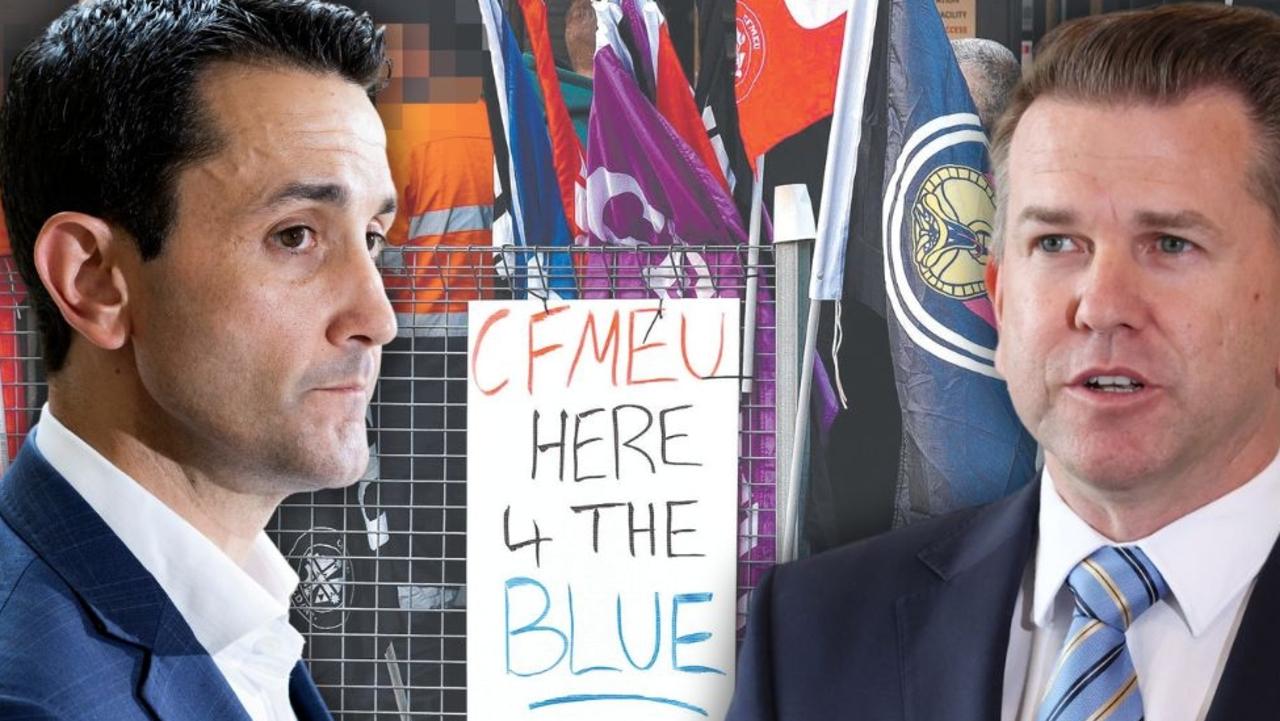Editorial: Government is failing to sell renewables
The transition to renewables becomes doubly hard when leaders fail to win the support of communities, writes the editor.

Opinion
Don't miss out on the headlines from Opinion. Followed categories will be added to My News.
Queensland’s and Australia’s transition to low carbon energy is one of the country’s greatest challenges.
It will be hard enough on purely technical grounds.
But it becomes doubly hard when politicians and the promoters of the emerging green energy industry fail to win the support of private citizens and communities across the country.
This editorial is part of News Corp Australia’s Bush Summit series, celebrating rural and regional Australia and championing the issues that matter most to those living in the bush. You can read all our coverage here
And according to The Courier-Mail’s Mood of the Bush report, undertaken by SEC Newgate who polled 2021 Australians, including 1244 in the regions, they’re doing a pretty bad job of it.
The polling shows support for the renewable energy transition has plummeted to a new low in regional Queensland.
In 2022, 61 per cent of polled regional Queenslanders said they felt positive about renewable energy. Today, the figure is just 49 per cent.
That’s an even bigger slump than a similar decline in support nationally – from a positive rating of 64 per cent two years ago to 55 per cent today.
What’s happened in the past two years to turn public sentiment against renewables?
Well, it happens to coincide with the Queensland government beginning to roll out in earnest its multi-decade renewable energy plan.
And that means more local communities are starting to realise first-hand the potential impact on their farms and townships of the proposed massive new pumped hydro-electric schemes, wind and solar farms and new transition lines.

Premier Steven Miles tripped at one of his very first hurdles in April this year.
He found himself having to apologise to a fiery community meeting in Eungella, 70km west of Mackay, about the government’s failure to consult properly with locals about the nearby multibillion-dollar Pioneer-Burdekin pumped hydro scheme.
It is still in the planning stages, but slated to cost many billions of dollars. He promised to do better.
But this isn’t just a problem for governments. It’s also a challenge for every single promoter of a renewable energy project who shows up in a local community trying to win support – or “social licence” – for this or that grand new scheme.
As Local Government Association of Queensland chief executive Alison Smith says, winning that social licence involves more than “handing out a couple of sets of footy jerseys and netball bibs”.
Project developers also have to think about the long-term benefits and the needs of the local community.
It’s always been easier to sell the idea of a renewable energy future to city dwellers, who will barely notice the difference if their power comes from a coal-fired power station or a wind farm, but who can feel comforted they’re doing their bit to save the planet.
The real battle for hearts and minds will be in the country, where the switch to renewables will bring all sorts of obvious pluses and minuses.
The answer is, on the face of it, simple: Make sure that local communities are involved in the planning from the beginning of any project.
To quote the LGAQ’s Ms Smith once more: “It’s only fair that local communities, especially in regional Queensland, who are contributing so much to our economy, get their fair share of the economic and social benefits that come from these large-scale developments.”
SMELTER DEAL MUST BE TRANSPARENT
Queenslanders have a right to know how much taxpayer money is being spent in a sweetheart deal to keep global mining giant Rio Tinto operating in the state until the end of 2040.
In what is being labelled a “support package”, the agreement relates to subsidised energy costs for Rio Tinto’s aluminium smelter at Boyne Island, near Gladstone.
Premier Steven Miles concedes Rio – one of the richest companies in the world – could fund it themselves, “but they don’t have to do it here in Queensland”, and in a seat that is critical to their election hopes.
There is no doubt Rio Tinto’s smelter and aluminium refineries are critical to the future viability of Gladstone, which has been essentially built around the two towering structures.
Rio supports thousands of jobs directly and indirectly in the town.
So Mr Miles is correct when he says Rio Tinto leaving would “devastate Gladstone”.
And the government should have an eye on protecting Queensland jobs.
However, that does not take away from the right for Queenslanders to ask for transparency around the deal.
Taxpayer money should never be spent lightly.
Mr Miles must make the details of the deal public, so it can be appropriately scrutinised.
Responsibility for election comment is taken by Chris Jones, corner of Mayne Rd & Campbell St, Bowen Hills, Qld 4006. Printed and published by NEWSQUEENSLAND (ACN 009 661 778). Contact details here




